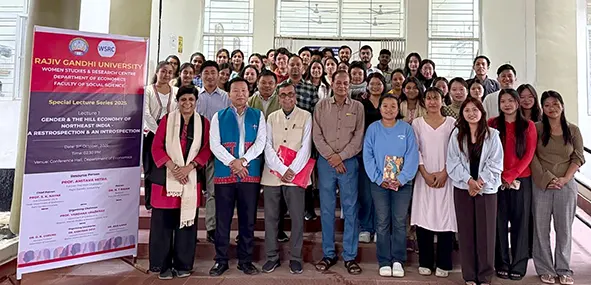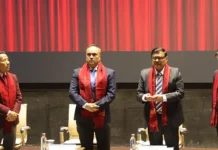RONO HILLS, 31 Oct: Retired Rajiv Gandhi University (RGU) professor Amitava Mitra said that women’s participation and perspectives are central to understanding the socioeconomic dynamics of hill societies.
Delivering a special lecture on ‘Gender and the hill economy of Northeast India: Retrospection and introspection’, organised by the Women’s Studies and Research Centre of RGU here on Friday, Prof Mitra elaborated Boserup’s hypothesis on female work participation and spoke about the intricate relationships between female workforce participation, fertility patterns, and economic growth, situating these within the broader demographic and cultural context of the Northeast.
He also reflected on the evolution of the hill economy of Northeast India, tracing its transformation from traditional subsistence systems to modern state economies.
He highlighted that the formation of different hilly states after independence marked a crucial phase in the region’s development trajectory.
Speaking on the challenges and areas of concern, he emphasised the importance of technological advancement, institutional reforms, and infrastructure development for sustainable and inclusive growth. He also highlighted the potential areas for development, such as ecotourism, horticulture, floriculture, and extraction of rare earth minerals.



